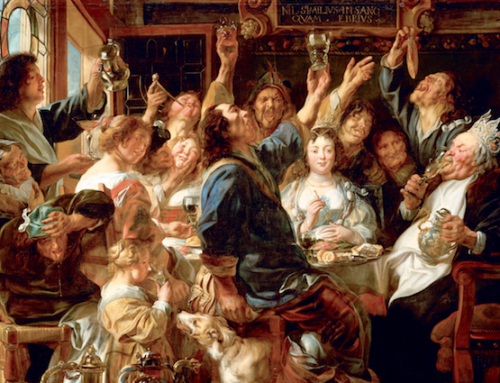If you’re a moviegoer who follows the Oscars, you might have seen Green Book, a 2018 movie about an Italian-American bouncer who chauffeurs an African-American pianist on a performing tour through the deep South in the 1960s. It stars actors Mahershala Ali and Viggo Mortensen, and I can’t say enough good things about it. What drew me, of course, was the classical music angle hovering on the periphery.
The film’s title derives itself from a publication, from 1936 to 1966, called The Negro Motorist Green Book, which pointed black travelers toward establishments where they would be welcomed throughout the deeply segregated South. The movie is based on a true story (the screenwriter is Nick Vallelonga, son of Tony “Lip” Vallelonga, the chauffeur, who chronicled his father’s shared recollections), although the film condenses the events into six weeks, when in real life, their travels together, on and off, lasted a year and a half. The two men remained friends for life.
Don Shirley, the son of Jamaican immigrant parents, was born in Florida in 1927. Considered a musical prodigy, he was invited at age 9 to study theory at the Leningrad Conservatory of Music. By age 10, he could play much of the piano’s standard concert repertory. He also composed his own work. He made his professional debut at age 18 with the Boston Pops, performing Tchaikovsky’s Piano Concerto No. 1 in B-flat minor and a year later, he performed one of his compositions with the London Philharmonic Orchestra. But he would soon come to discover that opportunities for classical black musicians were few and far between. Discouraged, he abandoned the piano as a career and studied psychology at the University of Chicago, where he earned his PhD. It was around this time that playing music returned to his life. He was advised that, while American audiences would have trouble accepting a black concert pianist, he’d be brilliant in playing what Shirley describes in the film not as jazz, but as “pop.” Doing so, as the leader of the Don Shirley Trio, he became highly successful, managing to infuse the music with enough classical elements to make it sound posh, unique.
‘‘The silky tone and supple rhythmic flow of Mr. Shirley’s playing is just as artful and ingratiating as ever,’’ Peter G. Davis wrote in The New York Times of a concert at Carnegie Hall in 1971. ‘‘’I Can’t Get Started’ heard as a Chopin nocturne, or ‘Blowin’ in the Wind’ as a Rachmaninoff etude, may strike some as a trifle odd, but these—and everything on the program, in fact—were beautifully tailored to spotlight Mr. Shirley’s easy lyrical style and bravura technique.’’
But back to the movie, Green Book. Tony and Dr. Don Shirley—whom Tony quickly takes to calling Doc, embark on the concert tour and initially all goes [relatively] smoothly. One scene appealed to the classical lover in me. Tony joins Don in a hotel lobby, where Don opens up to Tony about how he loves classical music, and finds what he had to settle for, as a musician, to be a step down. Tony’s shocked by this. He’s heard Dr. Shirley play, telling his wife that “he’s like a musical genius—as good as Liberace!” and now says to Shirley, “Anyone can sound like Beethoven. But your music, what you do—only you can do that.”
It was a heartfelt compliment, mind you. Maybe the others in the audience felt the same way, that Tony was telling him the truth. I had this moment of recoiling, worried that this might be a story theme, like “jazz and pop are relevant and good, while classical music is dry and elitist.” But Don Shirley had embraced his classical training; it was where his musical prodigy existed. So Don only smiles over Tony’s words, too polite to scorn them, but likely aware (like myself) that, no, not everyone can sound like Beethoven. Not every professional pianist can play Beethoven, or, Shirley’s favorite composer, Chopin, in a way that is so knowing of the composer’s intentions, nuances, that, when they play it, it is like conjuring up Beethoven and/or Chopin, the composer’s spirit, the music’s spirit. It’s damned hard to play complex, note-heavy music and make it sound, paradoxically, as uncomplicated and organic as water trickling through a stream (or in Beethoven’s case, water thundering down Niagara Falls). Don Shirley could play this way. But the world wasn’t interested in hearing him play classical music, not in 1960’s America.
The movie is marvelous, plenty of humor, heart, expected (and unexpected) pathos as the two make their way further into the deep South. I’m not here to write a review, but if you’d like one, click HERE, for a good one by Jonathan Romney. But there’s a scene toward the end that I LOVED SO MUCH, I had to share it here. Following a racially spurred incident before a final performance, Doc and Tony walk out of the venue in a rage (whoops, should I have said “spoiler alert”? Um, SPOILER ALERT) and head instead to a roadside joint, which had been recommended to Don because it “served dinner to people of color.” You can visualize this great joint, the jazz playing, the soul food being served, and Tony loves the vibe of the place. He’s far more comfortable there than Don, who’s wearing a tux and can’t help the fact that he has the formal bearing of a king. It’s who he is. But the two take a seat, have a drink, some food, and Don relaxes. The female bartender, curious about Don’s posh looks and attire, asks what he does. When she hears he’s a pianist, she gestures to the piano on a small stage in the corner, currently unoccupied because the musicians are taking a break. Don hesitates, Tony prods him, and finally Don gets up and goes to the piano.
Oh, what a delicious moment. He sits, adjusts the bench, and softly plays eight notes, a simple melody. Dum dum du-dum DA dum dum DA. Repeats it more softly, with chords.
You can tell the other customers listening are bemused, thinking, okayyyyy, that’s the best he can do? But if you know Chopin, or saw the movie, maybe you know what’s coming. I felt the awareness like an incipient ache, a split second of “OmigodIKnowWhat’sComingNeeeeeext” and then, the crashing, stunning, unforgettable, searing cascade of notes that is Chopin’s Étude Op. 25, No 11 in A minor. (Subtitled “Winter Wind,” which is SO perfect.)
I think it’s time for you to hear it.
What I found so unforgettable was how, as Don played, you could feel his rage—but wait, that’s the wrong word. More like an energized sorrow, a lifetime’s lament, that this music by Chopin, this really smokin’, hard-to-play music, was what stirred his soul, not the mainstream jazz he and his trio performed. Or maybe it was the pent-up frustration of dealing with the indignities of being a black man in the 1960’s, in the deep South, seen for his skin color and not his musical talent. Regardless, it was amazing. I love, love, loved this scene, this movie.
The Academy Awards are on Sunday, Feb 24th, and Green Book received multiple nominations, including for Best Actor, Best Supporting Actor, Best Original Screenplay and, the most exciting category: Best Picture. I’m not sure how well this much-beloved film (to me) will stand up against the others. In the aforementioned/linked review above, Jonathan Romney says: “Green Book is a road trip into another era, in more ways than one. It’s a quietly mischievous comedy-drama about race, unimpeachably well-meaning in an old-fashioned way—but something of a benign dinosaur in the age of Get Out, BlacKkKlansman, and Sorry to Bother You.“ He brings up a good point. But me, I’ll be rooting for this wonderful film on Sunday night. If you haven’t gotten a chance to see it yet, run out and do so ASAP.
Republished with gracious permission from The Classical Girl.
The Imaginative Conservative applies the principle of appreciation to the discussion of culture and politics—we approach dialogue with magnanimity rather than with mere civility. Will you help us remain a refreshing oasis in the increasingly contentious arena of modern discourse? Please consider donating now.









Leave A Comment